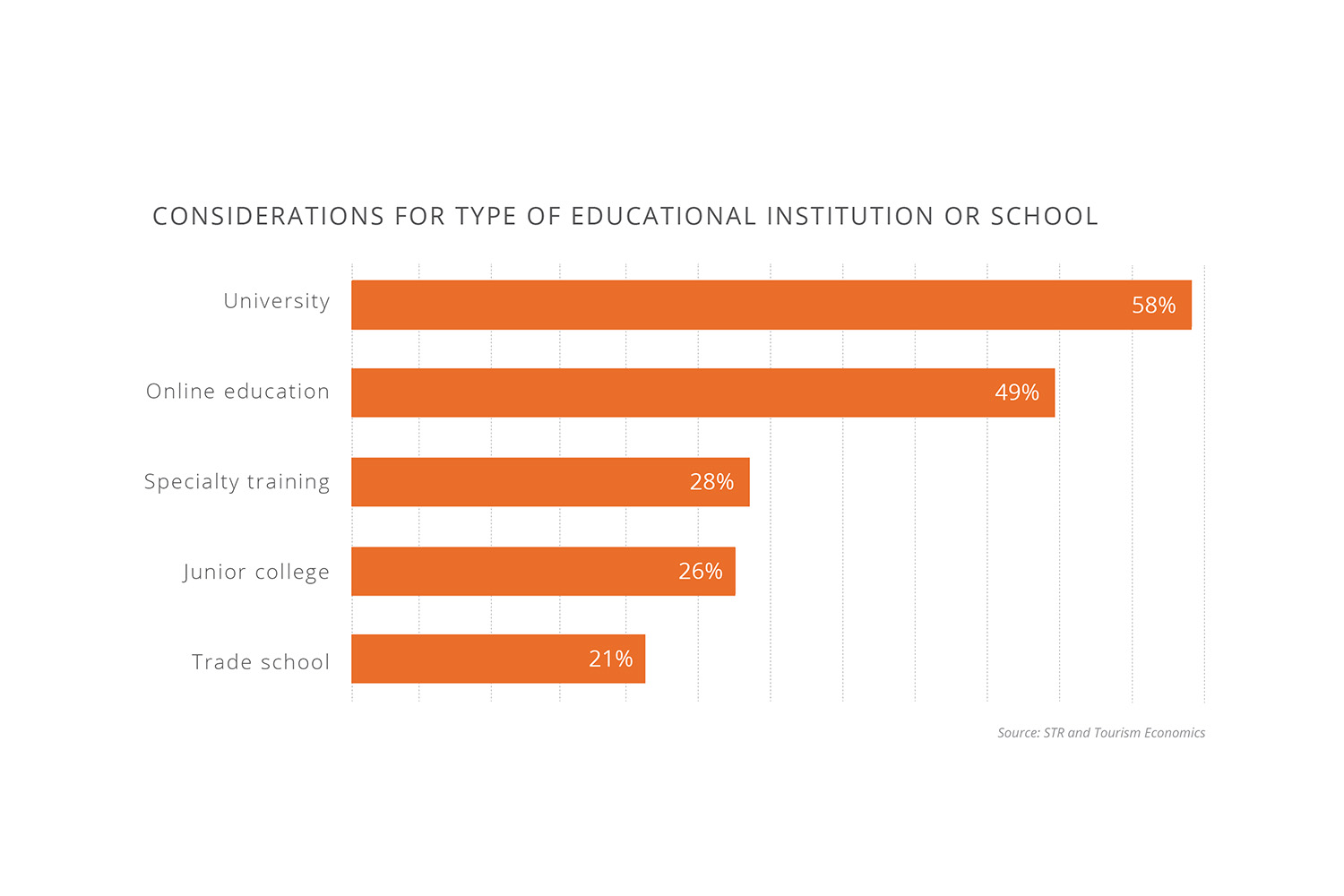Sign up for our LAVY email
and get our bi-monthly newsletter.
This article is a brief abstract of our exclusive study that takes the guesswork
out of education advertising and marketing.
Download LAVIDGE Education Marketing Research and Insights, Volume 1.
 It’s a fact. Sixty percent of prospective students will spend more than two weeks researching your school before deciding to enroll. It’s imperative to know which marketing messages are most likely to influence them to choose your institution of learning.
It’s a fact. Sixty percent of prospective students will spend more than two weeks researching your school before deciding to enroll. It’s imperative to know which marketing messages are most likely to influence them to choose your institution of learning.
We asked respondents who participated in our “LAVIDGE Education Marketing Research and Insights, Volume 1” study which words are most effective in motivating them to choose an institution or school. We learned that “affordable” is almost twice as motivational for education-seekers than any other option presented. Considering college tuition has increased more than 150% in the past decade, it’s not completely surprising. So, in case you were tempted to focus on something sexier, such as your student athletics program, or something timely such as inclusivity, you might want to reconsider.
Here’s the breakdown:
What’s more, affordability also ranked highest as motivational among those aged 55+ (81%), and those with some college or trade school education (81%).

What’s motivational overall isn’t necessarily consistent across the board. Preferences among subgroups of potential enrollees emerged showing variances based on a number of demographic identifiers.
For example:
What’s the difference between marketing messages important enough to motivate a student to enroll and ones they consider very (or most) important?
Our education study reveals that when choosing an educational institution or school, cost always tops the list:
Additionally, tuition cost consistently ranks high across employment, income, gender, age, education, and ethnicity.
Other top priorities include:
Course of study ranks high:
Accreditation is also important to
Non-Caucasians rank the following higher than Caucasians:
Athletics is more important to those:
Extracurricular activities are ranked similarly among those:
Extracurriculars also ranked higher among these two groups compared to others.
Sign up for our LAVY email
and get our bi-monthly newsletter.